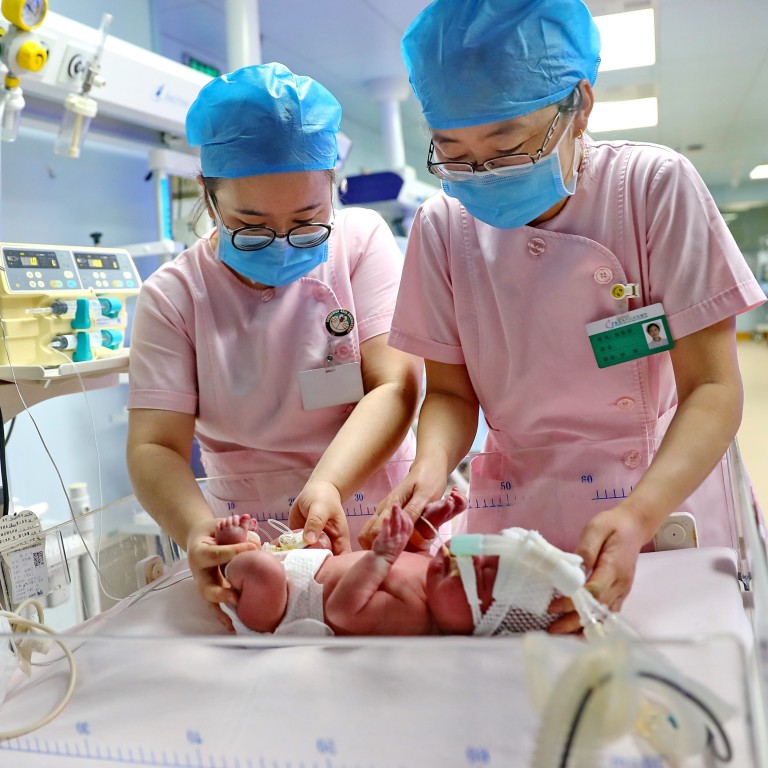
China can boost births by improving living standards, demographer says
- Cai Fang, with the CASS, also points to an ‘urgent need’ to make basic public services widely available
- He says extremely low fertility rate would improve with a better score on the UNDP’s Human Development Index
China has “great potential” for a higher fertility rate if the standard of living and access to public services are improved, according to a leading demographer
In an article in The Beijing News on Wednesday, Cai Fang, a demographic economist with the Chinese Academy of Social Sciences, also said there was an “urgent need” to improve basic public services and make them available to everyone to address the extremely low fertility rate.
Despite China’s push to lift births, single mothers must fight for rights
According to the latest official data, there were just over seven babies born per 100 people in mainland China in 2021 – a record low. The fertility rate, or the number of children per woman, is now 1.3. That is below the level in Japan, a rapidly ageing population like China, and below the replacement rate of 2.1.
China is facing a major demographic challenge as the working-age population shrinks, with over-60s expected to make up a third of the population by 2050, and there are concerns that the ageing society and declining births could threaten future economic growth.
There have been moves to change this, including with more parental leave in some places and the introduction in January of a monthly tax deduction of 1,000 yuan (US$157) per child under three to help ease the financial burden.
However, economists and demographers say the government needs to do more.
According to Cai, with the CASS, Beijing could use the UNDP’s Human Development Index (HDI) as a measure to help assess and improve public services in China.
HDI is a measure of average achievement in key dimensions of human development: a long and healthy life, being knowledgeable, and having a decent standard of living in terms of gross domestic product per capita.
China’s HDI value for 2019 was 0.761 – ranking it at 85 out of 189 countries and territories. Norway topped the list with a value of 0.957, followed by Ireland and Switzerland. Most developed countries have an HDI score of 0.8 or above, and have stable governments, widespread education and healthcare, high life expectancies, and growing, powerful economies.
Cai said the fertility rate would improve with a higher HDI score. “The fertility rate will hit the bottom and rebound when the HDI at least reaches the range between 0.80 and 0.85,” he wrote.
‘Are women just machines?’ Chinese web users left cold by birth rate solutions
China, the world’s second-largest economy, was ranked 79th for GDP per capita as of 2017. Some 600 million people in the country live on a monthly income of 1,000 yuan or less, Premier Li Keqiang has said. That means more than 40 per cent of the 1.4 billion population live on less than US$5 a day, and for many there is no pension or medical insurance.
In addition to improving public services and living standards, Cai said “special attention should be given to gender equality”.
Gender discrimination remains pervasive in China and has discouraged some women from getting married. Many women in recent years have also raised concerns about issues such as domestic violence, the unequal distribution of household work and discrimination against working mothers.
Huang Wenzheng, a demographer and senior fellow at the Centre for China and Globalisation in Beijing, was not optimistic that the change to the birth policy and more support measures would be enough to encourage people to have more children.
“So far the effects of the policy have been too limited to reverse the trend of a declining fertility rate,” he said.

